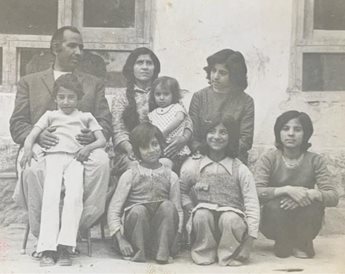Identity by Zohal Siddiqui - HR Workforce & Systems Analyst

I cannot sum up the experiences of a whole country through a single post, so this is my attempt to highlight my experiences as a British citizen with Afghani heritage, a Muslim woman living in a period of increasing islamophobia and just a girl with a dream.
There is a significant difference between general immigration and immigration by refugees forced to leave their homeland. In the year 1999 when I was just five years old, my parents decided to flee the war and conflict of Afghanistan and migrated to Britain in search for peace. Our journey to Britain was not short of loss, bereavement and grief. As a child my trauma was silenced because I was unaware of the flight reasons, and as a result I experienced an unclear cultural identity. I felt like I didn’t belong to the culture of my home country, neither to the culture of my host country. Growing up amongst my British peers, who grew up in a society that modeled freedom, choice, and women’s rights, not forced marriage, access to education, violence and war, made me feel different because I am different.
As human beings we are in search of acceptance and belonging, and my experience with increasing islamophobia in the western world had consequently affected my Muslim identity. In my religion we greet someone by saying “Peace be upon you”, a form of prayer, that is how you say “Hi”. The Quran taught me that in heaven people are in a peaceful community, friendly with each other, and that this paradise is the greatest good. Its clear that this way of living is a model for human life and if the pinnacle of paradise is peace then surely that’s what Islam should represent in this life as well. In the year 2001, the definition of my religion had changed overnight. Today, many Muslim countries are emerging from decades of imperial and western dominance, many years of being told their way of living is barbaric. As a young Muslim girl, this newly mounted pressure forced me to assimilate quickly into British society and very soon I found myself having to choose between failing to identify with my fellow Brits or failing as a Muslim daughter. I was growing up to become more like the people who I identified as powerful and privileged, these people were not Afghan or Muslim yet there I was adapting and borrowing traits to become more like them just so I could feel a sense of connection and belonging.
It took me twenty years to realise that trying to identify with what’s around me has had a devastating impact on my inner identity development. In the past few years I have experienced a very different journey, one of self-discovery that is not dictated by leaders and policy makers, a journey of a girl dreaming of a world without conflict and war. As an adult who is no longer in search of acceptance by people or society, be it in my country of origin or my host country, I am finally on a path that leads me to what my parents were searching for in 1999 – peace. Yes, we crave connection and belonging but there are similarities that connect us all as humans and we should strive to find them and educate ourselves, to understand one another and celebrate our differences. Not just today, not just for South Asian History Month or Black History Month - we should educate, commemorate and celebrate our differences throughout the year.
(the photo is of my grandparents with their son and five daughters in 1978, Afghanistan)